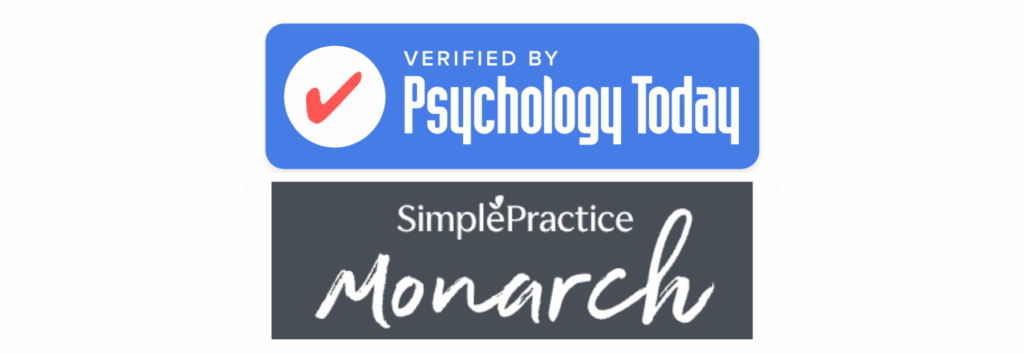Navigating a marriage impacted by ADHD requires patience, understanding, and effective strategies. ADHD can bring unique challenges to a relationship, but with the right approach, couples can overcome them together.
This blog post dives into how ADHD can affect marriage and disrupt marital harmony, offering practical solutions along the way.
Key Takeaways
-
ADHD affects marital relationships in many ways, impacting communication, intimacy, housework, and the dynamic between partners. This broad range of relationship aspects, including the sharing of responsibilities and the impact on marital satisfaction, underscores the importance of both partners making voluntary behavioral changes and seeking effective treatment to address the challenges introduced by ADHD.
-
Couples with ADHD face unique hurdles but can improve their relationship through dedicated strategies such as improving communication with active listening, creating structured task management systems, and seeking specialized therapy options like ADHD-focused Couples Therapy.
-
Empathy, understanding, and patience are foundational for navigating ADHD marriages effectively; support groups, professional resources, and a non-judgmental environment are crucial in cultivating these attributes and strengthening the marriage.
How ADHD Can Impact a Marriage
ADHD can significantly impact both partners in a marriage, influencing overall dynamics and satisfaction in the relationship. A study utilizing the Marital Adjustment Scale has indicated that individuals with ADHD tend to perceive a lower level of marital satisfaction compared to their non-ADHD spouses. This could be attributed to the unique challenges that ADHD brings to the table, affecting communication, responsibility sharing, and overall family functioning.
However, both partners, including the one with ADHD, play a significant role in the relationship and the way they react to each other’s concerns. By recognizing the effects of ADHD and exploring ways to support the partner with ADHD, couples can move past unhappiness and toward improved marital dynamics. The journey towards a healthier relationship starts with understanding ADHD symptoms and the experiences of the non-ADHD partner. The non-ADHD partner’s experience often involves navigating dissatisfaction with their partner’s distractions, feeling like they have to parent their partner, and facing the unique challenges and emotions that come with these dynamics.
Understanding ADHD Symptoms and Their Effects on Relationships
Attention deficit hyperactivity disorder (ADHD) is often associated with the following symptoms, which can be referred to as the ADHD effect. These symptoms might be present in individuals with undiagnosed ADHD or untreated ADHD:
-
Distractibility
-
Forgetfulness
-
Impulsivity
-
Restlessness
These symptoms can make it challenging for an individual with mental disorders, such as ADHD, to keep up with daily tasks due to executive functioning disorder, low motivation, and poor working memory. When these symptoms manifest in a relationship, they not only impact the success of the relationship but can also lead to feelings of neglect in the non-ADHD partner.
When individuals with ADHD are hyper-focused and preoccupied with their plans, they may unintentionally neglect their non-ADHD partners, leading to feelings of being ignored or not valued. This dynamic can result in strain within the relationship. Furthermore, the difference in ADHD brain wiring can be incomprehensible to the non-ADHD partner, causing misunderstandings in the relationship. Grasping these symptoms and their effects is pivotal for the betterment of ADHD relationships.
The Non-ADHD Partner’s Experience in ADHD Relationships
Keep in mind that ADHD is not just a challenge for the diagnosed individual; their partners also feel its effects. Non-ADHD partners, including the non-ADHD spouse, may experience feelings of anger and frustration due to their partner’s ADHD symptoms. Around 96% of spouses of adults with ADHD reported that their partner’s symptoms complicate household management and child-rearing, leading to an increased burden on them as the non-ADHD partner takes on more responsibilities.
Feelings of neglect can also arise when the partner with ADHD seems constantly distracted or preoccupied with other things. Comprehending this experience is fundamental to enhancing the dynamics of an ADHD relationship, providing insight into the unique hurdles faced by non-ADHD partners.
Common Challenges in ADHD Marriages
ADHD presents unique challenges in marriages, which, if not addressed, can lead to marital dysfunction and even divorce. Studies suggest that couples with ADHD are twice as likely to experience marital dysfunction and divorce as compared to couples without ADHD. Marriages involving adults diagnosed with ADHD tend to display more unfavorable patterns compared to those where neither partner has the condition.
The challenges often revolve around communication difficulties and unequal distribution of responsibilities, which can contribute to a destructive pattern of interaction and misunderstandings. When ADHD is not adequately recognized and treated, it can have serious consequences, leading to the termination of marriages. Early recognition and management of ADHD are vital for sustaining healthy relationships. But don’t despair! Couples who comprehend these challenges and employ strategies to surmount them can traverse the turbulent ADHD seas and secure their relationships.
Communication Difficulties
Communication is the lifeblood of any relationship. However, in marriages affected by ADHD, communication can become a significant challenge. Individuals with ADHD may impulsively share their thoughts, creating an overwhelming barrage of words for their partners. This rapid-fire conversation style, often conversation-hopping’’ can make it difficult for partners to follow and may leave issues unresolved. Some strategies to improve communication in marriages affected by ADHD include:
-
Setting clear expectations for communication
-
Using visual aids or written notes to help stay on track
-
Taking breaks during conversations to process information
-
Practicing active listening techniques
-
Seeking professional help or couples therapy
Couples can improve their communication and strengthen their relationship by implementing these strategies.
Moreover, ADHD partners can have difficulty with active listening and responding due to a preoccupied mind, affecting meaningful conversation exchange. A propensity for quick defensiveness can also hinder practical discussion and problem resolution. Identifying these ADHD communication pitfalls and striving to enhance dialogue can notably improve the quality of interactions within the relationship.
Unequal Distribution of Responsibilities
ADHD can lead to an uneven distribution of household responsibilities, as individuals with ADHD may forget chores or struggle with disorganization. This imbalance often leaves the non-ADHD partner feeling significant stress and perceiving their ADHD partner as unreliable, leading them to shoulder most of the household workload.
A parent-child dynamic can develop in household responsibilities, wherein the non-ADHD partner may resort to constant reminders or taking over tasks. This dynamic can foster resentment in the ADHD partner and a sense of helplessness, further straining the relationship. Comprehending this dynamic and striving for a more equitable division of responsibilities can help mitigate these challenges.
Strategies for Strengthening ADHD Marriages
Although ADHD can pose challenges in a marriage, it is vital to keep in mind that with appropriate strategies, these hurdles can be surmounted, a deeper understanding of the role ADHD plays in marital interactions can guide partners toward more positive and constructive responses. Here are some strategies to enhance communication, balance responsibilities, and work collaboratively:
-
Set aside dedicated time for open and honest communication
-
Use active listening techniques to ensure understanding
-
Break tasks into smaller, manageable steps and assign responsibilities
-
Create a shared calendar or task list to stay organized
-
Seek professional help and support when needed
By implementing these strategies, couples can traverse the ADHD journey together, strengthening their bond.
For changes to be effective, each partner must take accountability for their issues, support each other’s efforts towards improvement, and engage in positive reinforcement. Working as a united team, where both partners contribute to the partnership and support each other, is crucial in managing ADHD symptoms and building a harmonious marriage. Let’s examine these strategies, beginning with enhancements in communication.
Improving Communication
Ameliorating communication in ADHD marriages is a critical strategy that can notably improve relationship dynamics. Active listening and providing undivided attention during conversations are fundamental to this process. This means not just hearing but truly understanding and responding to what your partner is saying.
Creating an environment of emotional safety, where both partners feel secure in expressing themselves, is also crucial for improving communication in ADHD marriages. This can be achieved by developing and adjusting unique communication methods tailored to their specific relationship needs, alongside self-reflecting on their communication roles.
Support groups also offer a platform for couples to gain understanding and acquire effective communication strategies from shared experiences with other ADHD-impacted relationships and insights from the diagnostic and statistical manual.
Balancing Responsibilities
Achieving an equilibrium of responsibilities in ADHD marriages is another vital strategy for fortifying the relationship. Establishing personal boundaries and understanding realistic expectations can improve the dynamic of an ADHD marriage and aid in a fairer balance of responsibilities.
Additionally, it’s essential not to lose sight of the joy in the relationship amidst the challenges. Couples should dedicate time to positive experiences and not just focus on resolving issues. This approach can help restore balance, foster a stronger bond, and create a more harmonious relationship dynamic.
Seeking Professional Help for Adult ADHD in Marriages
Professional assistance is often required to address ADHD-related marital issues. For relationships where one or both partners have ADHD, ADHD-focused Couples Therapy is strongly advised. Participating in therapy tailored for ADHD-related marital matters can lead to increased understanding and improved relationship dynamics.
Professional help, such as ADHD-focused couples therapy, aids couples in managing unique challenges brought on by ADHD, improving daily functioning in the relationship. Exploring therapy options and utilizing support groups and resources can provide invaluable assistance for couples navigating ADHD marriages.
Therapy Options
Therapy offers a structured and supportive environment for couples dealing with ADHD in their marriage. Therapy options include individual treatment for the ADHD partner and couples therapy that focuses on relationship dynamics. These sessions provide guidance and introduce strategies to enhance communication in a supportive setting, allowing the couple to practice and refine their new skills.
Cognitive behavioral therapy (CBT) is an integral part of ADHD-focused Couples Therapy. CBT aims to correct negative thought patterns and behaviors to improve relationship dynamics and conflict resolution. Engaging in these therapeutic options allows couples to traverse the challenges of ADHD with enhanced comprehension and efficient strategies.
Support Groups and Resources
Support groups and resources also play a crucial role in assisting couples in navigating ADHD marriages. The Attention Deficit Disorder Association (ADDA) provides virtual ADHD partner support groups. These groups offer a safe space for partners of individuals with ADHD to share experiences and advice, providing valuable insights and practical solutions to common challenges.
The ATTN Center offers the following resources for couples dealing with ADHD in their marriage:
-
Therapy and support groups
-
Neurofeedback
-
Testing options
-
Coordination with medication management if required
By utilizing these resources, couples can gain the tools and support they need to navigate the challenges of ADHD in their marriage successfully.
The Importance of Empathy and Understanding
Though strategies and external resources are vital, the bedrock of any successful ADHD marriage lies in empathy, understanding, and mental health. Cultivating these qualities is critical in overcoming past resentments and fostering deeper connections in a marriage affected by ADHD.
Here are some ways to cultivate empathy and understanding in an ADHD marriage:
-
Identify ADHD symptoms and educate yourself about them
-
Practice active listening and validate your partner’s experiences
-
Communicate openly and honestly about the challenges and frustrations of ADHD
-
Seek professional help and therapy to learn coping strategies and improve communication skills
Implementing these strategies can clear misunderstandings and lead to more measured responses to ADHD symptoms, ultimately strengthening your marriage.
Support groups and resources are instrumental in providing a sense of understanding and practical advice for both partners dealing with ADHD in their marriage. Some key benefits of support groups and resources include:
-
Providing a sense of understanding and empathy
-
Offering practical advice and strategies for managing ADHD symptoms in a relationship
-
Creating a non-judgmental environment where partners can share their experiences and challenges
-
Helping partners distinguish between their partner and their partner’s ADHD symptoms
-
Offering a space for partners to learn from others who have similar experiences
These support groups and resources can be invaluable in navigating the challenges that ADHD can bring to a marriage.
Recognizing the Impact of ADHD
Recognizing the impact of ADHD on adult relationships is a significant step toward developing empathy and patience. Adults with ADHD often report higher levels of dissatisfaction in their marriages compared to their non-ADHD partners. Recognizing the role of ADHD in adult relationships can clarify the roots of specific relational issues and dissatisfaction.
Building acceptance and understanding of an ADHD partner’s behavior can foster improved communication, highlighting that these behaviors are not a conscious choice. Education about adult ADHD empowers the non-ADHD partner with empathy and patience, leading to enhanced mutual understanding.
By reducing feelings of resentment and supporting better dialogue through empathy, couples can create a healthier relationship dynamic.
Fostering a Non-Judgmental Environment
Establishing a non-judgmental environment is essential in a marriage where one partner has ADHD. Here are some ways to create a non-judgmental environment:
-
Acknowledge each other’s intentions rather than fixating on actions
-
Practice active listening and validate each other’s feelings
-
Be patient and understanding when ADHD symptoms arise
-
Educate yourselves about ADHD and its impact on relationships
-
Seek professional help and support if needed
By adopting this perspective, you can foster patience and empathy, which are essential qualities for navigating the challenges of ADHD marriages.
Couples can create a blame-free space by consciously choosing not to criticize each other’s ADHD-related behaviors and focusing on constructive support. Implementing this perspective of nonjudgment and understanding intentions can lead to stronger bonds and more effective communication between partners. This nurturing environment paves the way for better understanding, healthier communication, and a stronger relationship.
Summary
In conclusion, ADHD can significantly impact marital dynamics, but it doesn’t have to dictate the course of a relationship. Recognizing ADHD symptoms, understanding the experiences of the non-ADHD partner, and implementing effective strategies can lead to improved marital dynamics. It’s a journey that requires patience, empathy, and much understanding. But with the proper support, resources, and strategies, couples can navigate the ebbs and flows of an ADHD marriage and build a relationship that is both resilient and nurturing.
Frequently Asked Questions
How does ADHD affect marital relationships?
ADHD can impact marital relationships by causing communication challenges, feelings of neglect, and an unequal share of responsibilities, impacting overall satisfaction in the relationship.
What strategies can help strengthen ADHD marriages?
Improving communication, balancing responsibilities, and seeking professional help, such as ADHD-focused couples therapy, are essential strategies for strengthening ADHD marriages. Working as a team and addressing these issues can significantly affect the relationship.
What resources are available for couples navigating ADHD marriages?
Couples navigating ADHD marriages can seek professional help through therapy options like individual and couples therapy and also find support from groups such as the Attention Deficit Disorder Association (ADDA) and resources like the ATTN Center.
How do you foster a non-judgmental environment in ADHD marriages?
Fostering a non-judgmental environment in ADHD marriages requires open and honest communication. This means actively listening to your partner without jumping to conclusions or making assumptions. It also involves refraining from criticism and instead focusing on finding solutions together.







